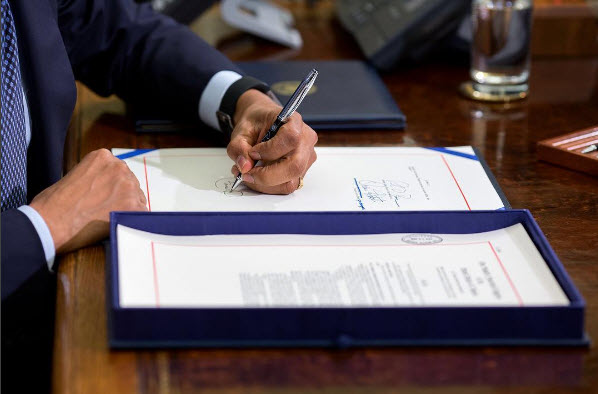New Federal Trade Secrets Act Has Immediate Business Impact

President Obama signs
the Defend Trade Secrets Act on May 11, 2016.
White House photo by Pete Souza
used pursuant to 17 U.S.C. §105.
Until this year, trade secret law has been wholly a creature of state law, with most state courts applying similar trade secret protections but not necessarily the same laws. With this new law, the federal government has created a federal cause of action for bringing claims of trade secret misappropriation and created a uniform set of laws to be applied across the country.
The new statute creates federal court original jurisdiction for trade secrets claims, adds protections for maintaining confidential information during the course of a court action, allows for injunctive relief and damages in a misappropriation case, and provides potential immunity for disclosure of confidential information by those involved in whistleblower actions. The statute contains a fascinating civil seizure provision, allowing ex parte seizure of allegedly misappropriated trade secret materials if certain very high standards are met. This will prove a powerful tool for owners of true trade secrets in a serious misappropriation situation.
The whistle blower immunity has an immediate impact on all businesses that rely on confidentiality agreements with their workers, as failing to abide by the new disclosure requirements can expose an employer to liability for damages and attorneys fees. All companies that rely on confidentiality agreements in Florida now need to be sure their agreements and/or employment manuals meet the requirements of the statute as well as the confines of Florida’s statutes governing non-competition agreements.
DPW Legal can help you ensure that you are complying with the new disclosure provisions. Contact us at DPW Legal, (813) 778-5161.


